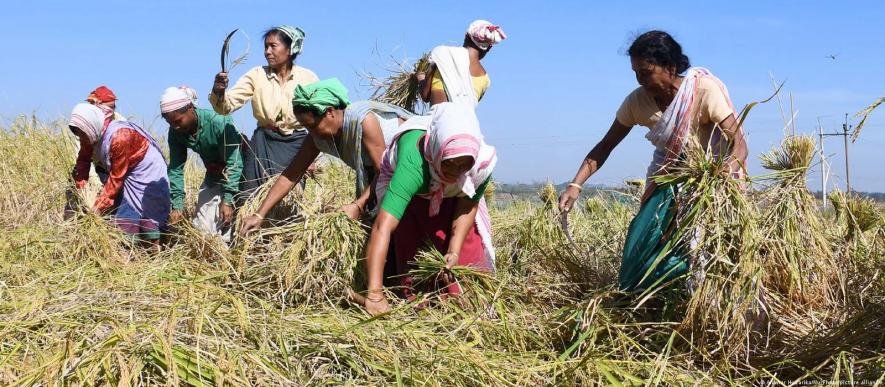India's Tribes Living on The Margin Of Society

India's tribal communities suffer deficits in access to education, nutrition and clean drinking water, according to a "tribal development report" from the Bharat Rural Livelihoods Foundation (BRLF).
The new report claims to be the first exhaustive study since 1947 of the living conditions experienced by tribal communities across the country.
The study combined data from government sources, case studies, archival research and interviews with tribal communities. Its authors say the report is intended to highlight issues faced by tribal people in order to spearhead changes in policy.
"This voluminous report traces the historic neglect that tribes have suffered," said Pramathesh Ambasta, founding member of SPS, an Indian NGO focusing on development issues.
"The unique aspect is that it brings together many thematic areas concerning indigenous communities in one place," Ambasta told DW.
![]()

Many tribal people live in poor conditions in IndiaImage: David Talukdar/AA/picture alliance
Tribes missing out on development
Although over 8% of India's population belongs to a tribe, according to the latest census, tribal communities are increasingly being squeezed to the margins of society.
"Despite more than two decades of impressive GDP growth, India's growth has remained confined to enclaves of prosperity surrounded by vast hinterlands of deprivation," an excerpt of the report reads.
"Indigenous communities of India have been pushed farther away from alluvial plains and fertile river basins into the harshest ecological regions of the country like hills, forests and drylands."
Urban development has also displaced tribal communities. This has led to a situation where tribal people are forced to work as daily wage laborers and has left many more displaced without a means of sustenance.
"Tribal communities face marginalisation and oppression on multiple fronts — in terms of their lands, their forests, their access to basic services, and overall discrimination," said Shankar Gopalkrishnan, manager at the tribal interest group Campaign for Survival and Dignity.
"However, government policy has not treated any of these as priorities. In the case of forest and land rights, it has been actively undermining the rights of these communities. This needs to stop if genuine development or empowerment is to take place," she told DW.
For instance, the report said that tribal women have been particularly affected by the progressive and continuing loss of common lands and forests, as they are unable to continue playing a role in their communities' traditional economies after settlements are uprooted.
Tailor-made solutions needed
Dipa Sinha, an assistant professor at Ambedkar University researching health and public services, said that malnourishment is a big problem affecting Indian tribes, especially children.
Sinha told DW the future course of action should be focused on improving the supply side of welfare schemes for the tribal community through higher resource allocation and encouraging local innovations.
"Indigenous dietary practices that have been under threat for quite some time now need to preserve and ensure that access to non-timber forest products is not restricted through an abuse of the Forest Rights Act," added Sinha.
In its final analysis, the report emphasizes that it is important to understand the characteristics specific to different tribal communities and cultures before framing policies.
"There are many tribal communities that prefer isolation and silence. They are shy and are not going to reach out to the outside world on their own. Policymakers and leaders of the country need to understand this trait and then work towards the welfare of tribals so that they connect with them in a better way," the report said.
Edited by: Wesley Rahn
Get the latest reports & analysis with people's perspective on Protests, movements & deep analytical videos, discussions of the current affairs in your Telegram app. Subscribe to NewsClick's Telegram channel & get Real-Time updates on stories, as they get published on our website.
























